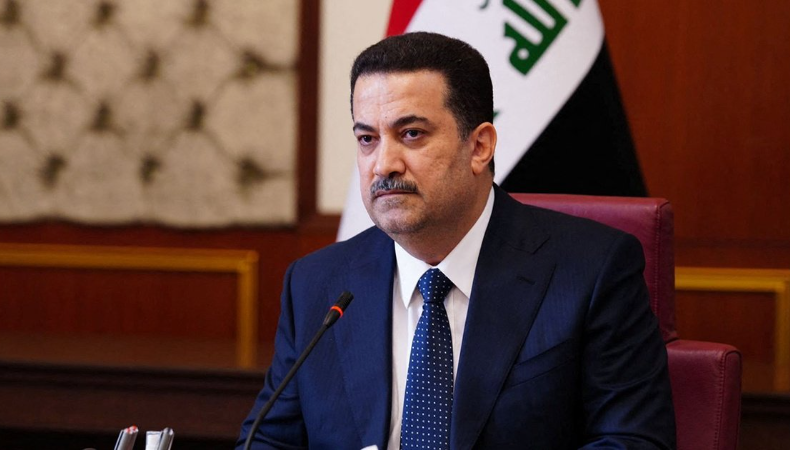Iraq’s Prime Minister Al-Sudani Drives AI Development Forward with Strategic Initiatives

Leading the second meeting of Iraq’s Higher Committee for Artificial Intelligence on Sunday, Prime Minister Mohammed S. Al-Sudani helped Iraq’s path towards regional leadership in artificial intelligence to be advanced. Following the committee’s first meeting in August, this gathering displayed a great degree of technological involvement among attendees; almost all of them had computers, a visual indication of Iraq’s will to embrace technology at all levels of government.
Al-Sudani started the conference by outlining Iraq’s AI-oriented government policies meant to spread artificial intelligence over major sectors and public services. He underlined in industries vital to Iraq’s economy including agriculture, water resource management, and education artificial intelligence would not only be a tool for efficiency but also a basis for sustainable development. The Prime Minister announced initiatives to create a legislative framework for artificial intelligence, ensuring that their acceptance conforms with Iraq’s national interests and legal and ethical norms.
Al-Sudani underlined that artificial intelligence is regarded as a transformational technology ready to redefine public services, not only a tool for basic automation in government. Emphasizing openness and responsibility in their implementation, he underlined in this context the importance of drafting a legal proposal outlining best practices and giving protections for applications of artificial intelligence.
Reform of Education: Arming Iraq’s Next Generation with artificial intelligence tools
Iraq’s AI approach is predicated on a dedication to revolutionize the educational sector thus equipping the next generations for the challenges of a digital economy. Aimed at giving students basic knowledge in these disciplines, recommendations for the next academic year include computer science and artificial intelligence topics added into the national curricula. Al-Sudani stressed that every Iraqi institution should have smart displays and internet access so that students may visit AI labs where they may receive genuine experience.
With the intention of leading Middle Eastern technology-driven learning, this project is a daring first step towards reform of Iraq’s educational system. Iraq wants to produce a generation with digital literacy so that a workforce equipped to satisfy technical requirements for home and global markets can grow. From basic programming to machine learning ideas, the AI labs in colleges are expected to expose students to a range of skills thereby bridging the gap between academic study and practical application.
Attracting local knowledge and global artificial intelligence experience
Understanding that good AI integration depended on experience, Prime Minister Al-Sudani approved a forward-looking project aiming at bringing skilled AI personnel from outside. Designed to solve Iraq’s present AI deficit, this project will inspire public and commercial sector companies to bring outside expertise in. Al-Sudani’s approach, meanwhile, also underlines the need of learning about local customs. Emphasizing worldwide best practices in artificial intelligence, the government will thus start in the first phase a training program for 100 digital leaders.
Under the direction of international artificial intelligence experts, these digital leaders—who will be vital in the creation and execution of Iraq’s AI policies—are expected to grow to be major players. With a view toward improving service quality especially for Iraqi citizens, their job will be to integrate Iraq’s artificial intelligence vision into practical programs and services. This combination approach of importing information while cultivating local talent indicates Iraq’s dedication to create a sustainable AI ecosystem that might expand naturally over time.
The Iraqi government is also dedicated to enhancing the technical infrastructure needed to enable artificial intelligence research in line with these educational and job projects. Al-Sudani admitted that the success of Iraq’s AI projects would be restricted without the required digital infrastructure. Plans call for improving all across the nation’s infrastructure for data storage and processing as well as increasing high-speed internet availability—especially in rural areas. These infrastructure projects will guarantee that urban and rural areas have the instruments required for artificial intelligence-driven development, therefore supporting Iraq’s AI objectives.
Moreover, this infrastructure project seeks to provide a more inclusive AI approach, lowering digital imbalance across many industries and giving Iraqis chances to engage in the digital economy. The Prime Minister aims to build an all-encompassing artificial intelligence ecosystem using Iraq’s several strengths in consideration of its particular constraints including limited access to technology in distant places.
Creating a cooperative space for artificial intelligence evolution
Al-Sudani’s strategy also stresses on inspiring cooperation among Iraq’s government agencies, universities, and businesses in order to speed artificial intelligence research and development. Iraq aims to establish itself as a center of artificial intelligence innovation in the Middle East by using global knowledge and resources by means of collaboration links with foreign technology businesses and research institutes. To foster an inventive culture and ongoing education inside the private sector, the Iraqi government is also thinking about incentives for neighboring companies to embrace artificial intelligence technologies.
Al-Sudani underlined in his last words Iraq’s will to build a robust artificial intelligence framework that not only promotes economic development but also improves the quality of living for its people. With a full artificial intelligence program, focused education reforms, and strategic diplomatic alliances, he hoped Iraq might become a leader in artificial intelligence, therefore influencing other countries in the area.
An Opinion for the Future
The steps taken during this most recent Higher Committee for Artificial Intelligence session point to Iraq in a turning point. The technologically advanced Iraq vision of Prime Minister Al-Sudani emphasizes the need of artificial intelligence as a fundamental tool for world competitiveness and sustainable development. Iraq is setting itself to fully welcome the AI era by means of educational reform, talent recruiting, infrastructural development, and regulatory frameworks.
By means of these projects, Iraq is not only creating the path for a more technologically advanced and efficient administration but also encouraging economic diversity and opposition against changes in world technology. Iraq’s path toward leading in artificial intelligence will be much watched by its neighbors as well as the international community since it shows how artificial intelligence could propel significant Middle Eastern development.




